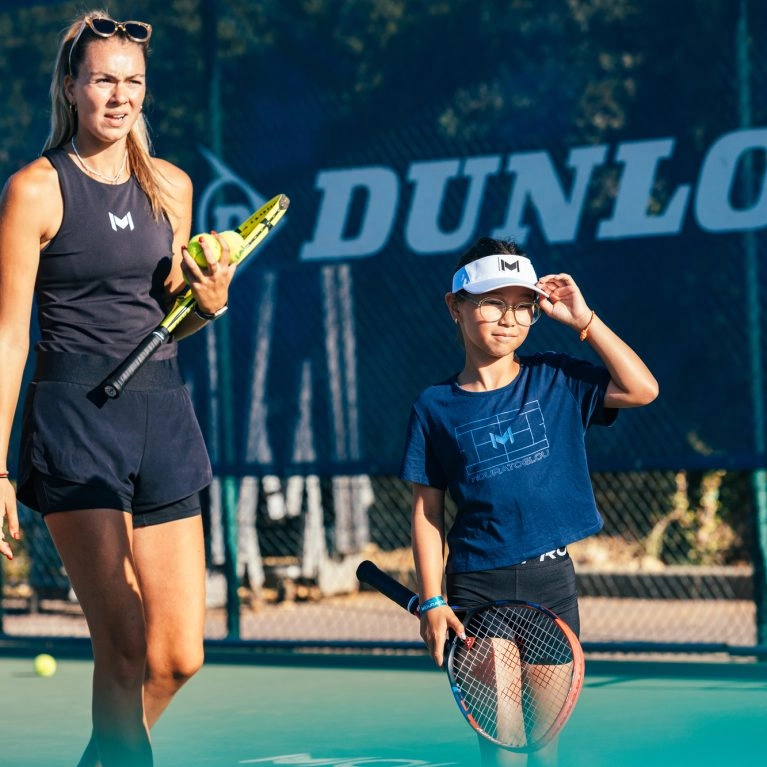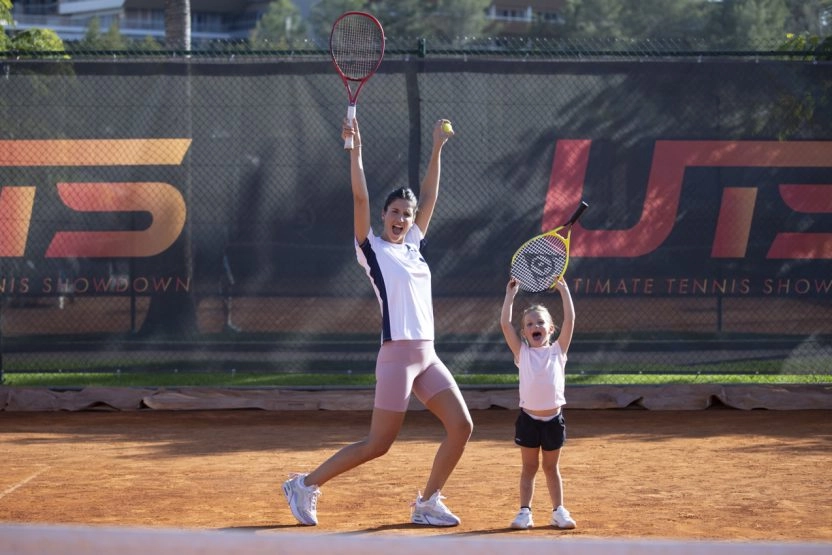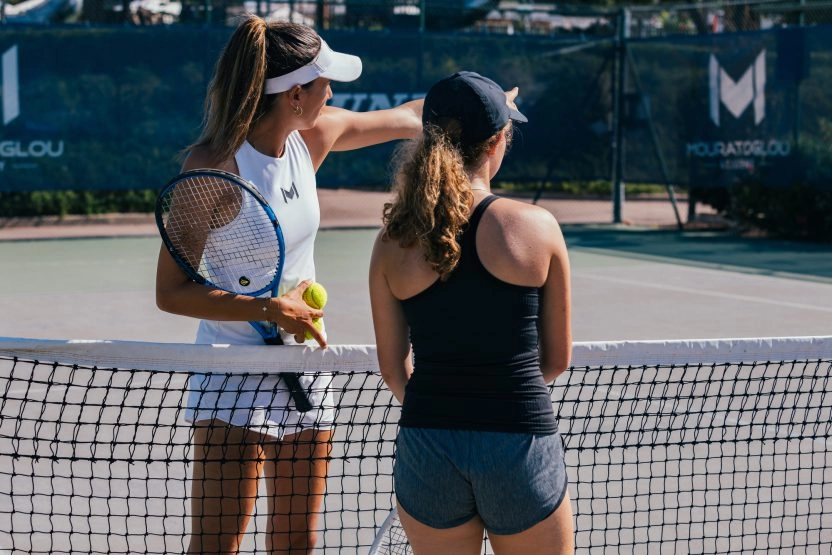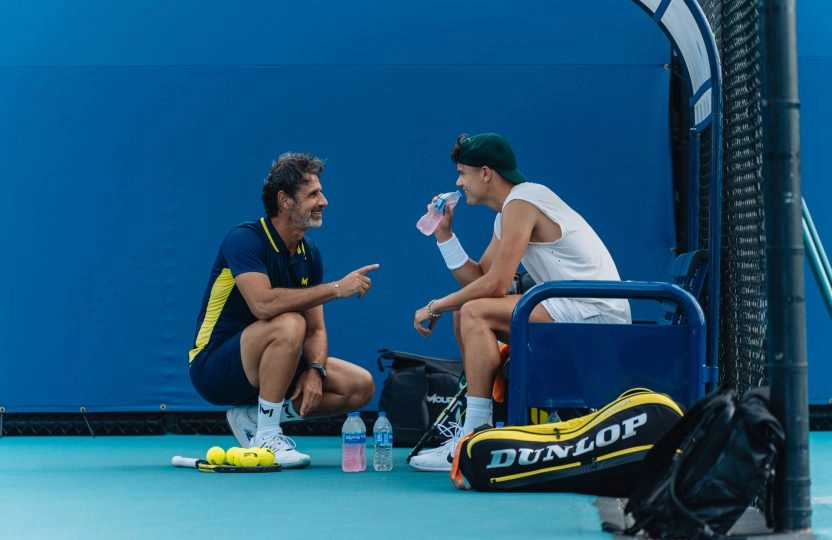Emotional support :
Above all, your role is to provide emotional support for your child. In competition, it’s crucial to offer your child a stable and reassuring environment, away from excessive expectations or the pressure of results.

Tennis is a demanding sport, not only for young players, but also for their parents. When your child takes part in tennis competitions, it’s important to find the right balance between support, motivation and managing expectations. Parents play a crucial role in their child’s development, both physically and mentally, and their influence can have a significant impact on their child’s progress. These concepts are also at the heart of the Mouratoglou Academy‘s tennis studies programme, which supports talented young players while guiding their families to ensure their harmonious development.
In this article, we’ll explore a number of tips for parents accompanying their child into the competitive world of tennis. Whether it’s helping to manage the pressure, encouraging solid physical and mental preparation or simply adopting the right attitude as a supporter, these tips will give you a better understanding of how to help your child perform while at the same time flourishing.
Parents have a vital role to play in supporting a child in tennis competition. Your presence and support can have a direct impact on your child’s motivation and confidence. However, it is essential to understand the limits of this role so as not to exert excessive pressure or generate unnecessary tension.
Physical and mental preparation play a key role in a tennis player’s development, and it is essential that parents ensure that their child adopts a suitable routine.

Tennis is a demanding sport that requires endurance, power and speed. Good physical preparation is essential to avoid injury and maintain a good level of performance throughout a match.

As well as physical preparation, the mental aspect is just as crucial to success in competition. Learning to manage your emotions, stay focused and overcome pressure are essential qualities for any tennis player.
Tennis competitions can be stressful not only for young players, but also for parents. It’s crucial to adopt the right attitude to support your child without generating unnecessary pressure.
Competition can sometimes lead to high expectations, and it’s easy to fall into the trap of comparing yourself with other young players or focusing too much on results. Learning to manage these expectations is essential for your child’s well-being.

Communication between parents and children is essential to maintaining a healthy relationship around competition. It’s important that your child feels supported and listened to.
Parental support is essential if a young tennis player is to succeed in competition. By adopting a positive attitude, encouraging appropriate physical and mental preparation, and managing expectations sympathetically, you will help your child to progress while remaining motivated and passionate about tennis. The key is to find the right
Help them to adopt stress management techniques such as deep breathing and visualisation. Remain positive and play down the results, valuing the effort rather than the victory.
Avoid setting objectives based solely on results and encourage your child to enjoy the learning process. Respect their pace and don’t compare them with other players.
Parents’ role is to support their child, stay positive and respect the rules of the game as well as the other participants. Avoid interfering with the coach’s instructions and let your child manage his or her own decisions on the court.
Where would you like to go?
France
Mouratoglou Academy, Biot, French Riviera, France

NORTH AMERICA
LATIN AMERICA
EUROPE
ASIA
MIDDLE-EAST & AFRICA
Who would you like to contact?
FRANCE
Mouratoglou Academy, Biot, French Riviera, FRANCE

NORTH AMERICA
LATIN AMERICA
EUROPE
ASIA
MIDDLE EAST & AFRICA